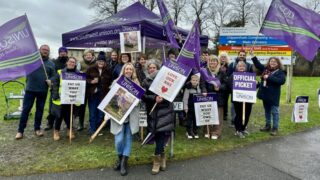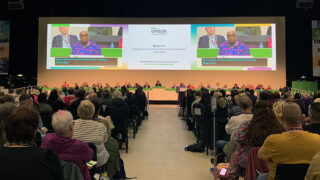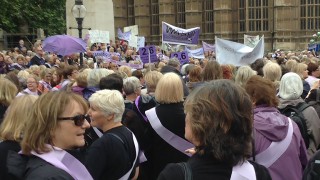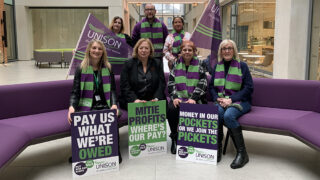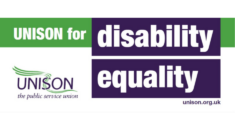UNISON has hailed yesterday’s strike action by local government and school support workers as an overwhelming success, with more than one million public service workers on picket lines and at rallies in protest over this year’s pay offer.
Reports in the media spoke of the largest strike in years, with a million people out on the streets.
And general secretary Dave Prentis called on the employers to come back to the negotiating table.
“We are repeating our calls for the local government employers to get back round the table and negotiate a decent pay offer for those workers who have endured four years of pay freezes and below-inflation pay offers as a result of the government’s misguided austerity agenda,” he said.
Doing the rounds of media in the morning, Mr Prentis took the message on to Good Morning Britain, while he told the International Business Times: “The top 1% increased their wealth by 18% last year, while our members are using foodbanks to get by.”
There were reports of 4,000 schools being closed, with a further 2,000 others partially shut.
Northern Ireland head of bargaining Anne Speed congratulated strikers, and told a rally in Belfast: “We also applaud the post office workers CWU members who refused to pass the picket at Belfast Education and Library Board.”
And in Anglesey and Gwynedd, Royal Mail vans showed support with strikers by refusing to cross picket lines, while Bute tunnel in Cardiff was closed by the day’s action.
In Nottingham, only 25% of bin wagons went out, while in Derby, 90% of refuse workers didn’t go out, and three quarters of wagons stayed in the depot in Great Yarmouth.
In Havering, it emerged that nobody knew how to turn on the lights in town hall – and it stayed dark throughout day.
Marina from Manchester told us: “I’m on strike because our pay has dropped 20% in real terms.”
And people joined the union at picket lines across the city. Rallies took place across the country, in Hull, Birmingham, Exeter, Liverpool, Newcastle, Preston, London, Cardiff, Manchester and Swansea, with marches in many more places.
And with perfect timing, a landmark report by economist Howard Reed was released, which used data from the International Monetary Fund to show that ending the government’s pay freeze would raise millions of pounds and create thousands of jobs.
Our members rose to the occasion magnificently and now the union can build on yesterday, with the possibility of further action if the employers remain reluctant to see sense.
Watch our film about the strike on YouTube
Key issue: local government pay
Lifting the cap – The economic impact of increasing public sector wages in the UK [PDF]

